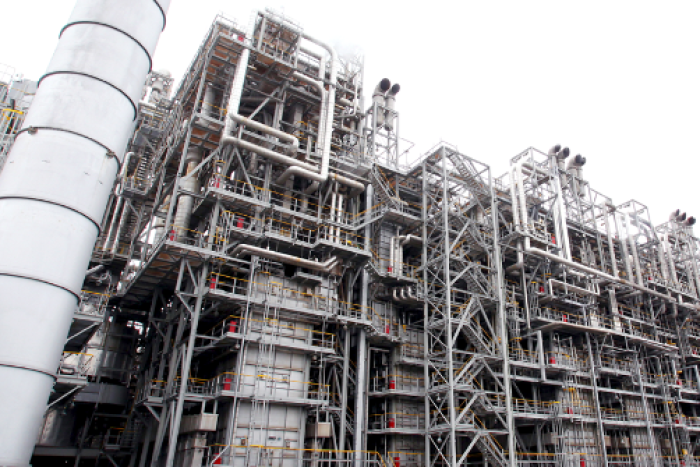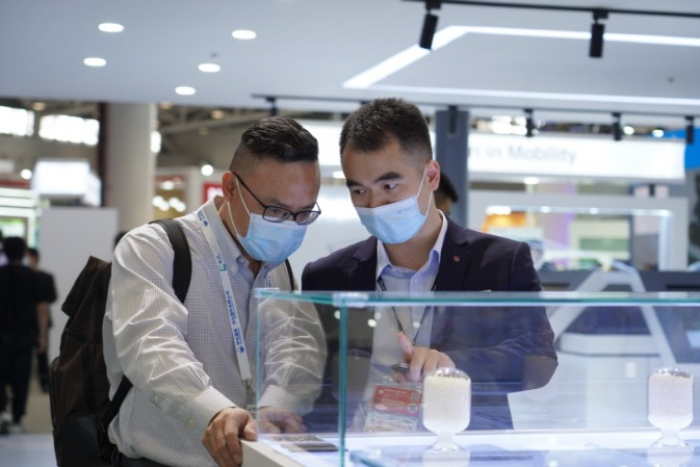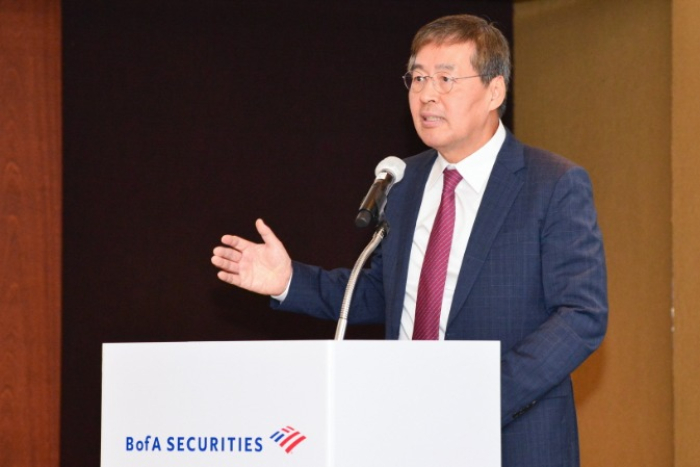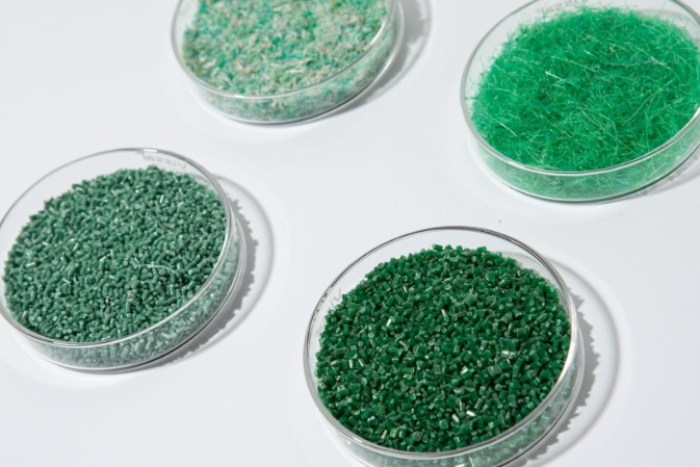LG Chem seeks to sell 2nd NCC facility in Korea in face of China’s ascent
This is part of the company’s business reorganization scheme to focus more on new growth drivers and higher-value-added products
By Jul 02, 2023 (Gmt+09:00)
MBK’s Korea Zinc takeover attempt to spur search for white knights


Korea Zinc, MBK face proxy war for zinc smelter


Korea Zinc shares skyrocket after buybacks in tender offer


Lotte to liquidate rubber JV in Malaysia, sell overseas assets for $1 bn


Samsung to unveil 400-layer bonding vertical NAND for AI servers by 2026



LG Chem Ltd. has embarked on a process to sell its core naphtha cracking center (NCC) in South Korea, estimated at about 3 trillion won ($2.3 billion), as part of its business reshuffle to bolster new growth drivers and higher-value-added products to fend off the ascent of its Chinese rivals.
According to sources in the chemical industry on Sunday, the Korean chemical giant has tapped potential buyers of its second NCC facility in Yeosu, about 320 kilometers south of Seoul, in the oil refining and petrochemical industries at home and abroad via an undisclosed investment bank.
A Middle Eastern petrochemical company and a local oil refining major are said to have received letters of intent for LG Chem’s second NCC facility in Yeosu, dubbed Y2C, which is estimated at about 3 trillion won, considering that the Korean chemical company poured 2.6 trillion won into it in 2021 to ramp up its output.
Its attempt to dispose of the core naphtha cracking business facility comes less than a month after its petrochemical division head Roh Kuk-rae hinted at the urgency to take aggressive steps to restructure “marginal businesses in a pre-emptive move” in an email message to divisional employees in mid-June.
He blamed Chinese rivals’ active expansion of integrated oil refining-petrochemical production complexes for the plummeting sale prices of petrochemical products, which has driven the operation suspension of some of the Korean company’s related facilities to mitigate losses.
CHINA’S EXPANSION IMPEDES LG CHEM’S PETROCHEM OUTPUT
NCC is a plant to crack naphtha at a high temperature to produce petrochemical feedstocks like ethylene and propylene. Korean players had been leading the production of petrochemical products until Chinese peers’ aggressive inroads into the market.

Amid the prolonged slowdown in the naphtha cracking market stemming from the global economic downturn and China’s rush into the market, LG Chem has yet to resume the operation of the Y2C facility on a 330,000-square-meter plot of land even after it last month completed the plant’s maintenance that started in April.
The facility run by 300 employees can produce 800,000 tons of ethylene and 480,000 tons of propylene a year.
LG Chem’s utilization rate of overall petrochemical production facilities including Y2C slowed to 81.4% in 2022 from 92% in 2020. It further slipped to 77.4% on average in the first quarter of this year.
The petrochemical division reported 21.7 trillion won in sales in 2022 but logged an operating loss of 165.9 billion won in the fourth quarter of last year and a 50.8 billion won operating loss in the first quarter of this year.
PIVOT TOWARD NEW GROWTH ENGINES
The sale of the Y2C facility is expected to accelerate LG Chem’s move to bolster higher-value-added petrochemical production of substances like polyolefin elastomer (POE) and its new growth drivers such as battery materials, eco-friendly materials and innovative drug development under the company’s pledge to become a top science player.

LG Chem Chief Executive Officer Shin Hak-cheol has unveiled the company's vision to become a global science power that will earn more than 60 trillion won in sales, of which 40 trillion won would be from the three new growth engines, by 2030.
As part of such efforts, LG Chem is also seeking to sell its minority stake in LG Energy Solution Ltd. to secure about 2 trillion won to beef up capital expenditure for the new growth engines. It is the parent company of the world’s second-largest vehicle battery maker with an 81.8% stake.
But the high price tag and the market slowdown are projected to be an obstacle to LG Chem's attempt to sell its second NCC facility in Yeosu.
SHIFTS IN THE KOREAN PETROCHEM INDUSTRY
China’s fast advance into the petrochemical industry has forced other Korean refining and chemical majors to join LG Chem in business reorganization.
China used to be the major importer of Korean petrochemical products but it has recently turned into a major petrochemical exporter after a massive petrochemical production facility ramp-up, which has created an oversupply that is delaying the recovery of the global petrochemical market.

In gloomy anticipation that the demand for Korean petrochemical products would remain subdued even after the global economic recovery due to China’s expansion, Korean chemical companies are accelerating their pivot from traditional petrochemical businesses to new growth engines centered around green energy and battery materials.
They also focus more on higher-value-added specialty chemicals or specialties on which other industries such as aerospace and auto sectors rely.
Lotte Chemical Corp. in January sold its entire 75.01% stake in its core overseas purified terephthalic acid (PTA) production unit Lotte Chemical Pakistan Ltd. to raise funds to reinforce its advanced material business and new growth sectors including battery materials.
GS Caltex Corp., an oil refiner under GS Group, earlier this year unloaded its entire 47.35% stake in a lubricant joint venture, GS Lubricants Co., in Tianjin, China to its Chinese partner after suffering years of loss-making due to lubricant oversupply in China.
Instead, it plans to complete the construction of a lubricant storage facility in Yeosu, South Jeolla Province, by 2026 in a bid to enhance the premium lubricant business, a higher-value-added product, according to the chemical industry on Sunday.
HD Hyundai Oilbank Co., a Korean refiner backed by Saudi Aramco, has also been rapidly expanding investment in blue hydrogen and the white bio, which are plant, microorganism and enzyme-based materials developed to replace chemicals, while S-Oil Corp. is aggressively bolstering its hydrogen ecosystem.
Write to Jae-Fu Kim and Hyung-Kyu Kim at hu@hankyung.com
Sookyung Seo edited this article.
-
 PetrochemicalsLG Chem to sell $1.6 bn stake in LG Energy to foreign investors
PetrochemicalsLG Chem to sell $1.6 bn stake in LG Energy to foreign investorsJun 19, 2023 (Gmt+09:00)
2 Min read -
 Chief ExecutivesLG Chem’s CEO searches for talent in Japan to lead new growth engines
Chief ExecutivesLG Chem’s CEO searches for talent in Japan to lead new growth enginesJun 02, 2023 (Gmt+09:00)
1 Min read -
 BatteriesLG Chem aims higher for battery materials with diverse portfolio
BatteriesLG Chem aims higher for battery materials with diverse portfolioMay 16, 2023 (Gmt+09:00)
3 Min read -
 Mergers & AcquisitionsLG Chem in talks with Glenwood to sell off diagnostics unit
Mergers & AcquisitionsLG Chem in talks with Glenwood to sell off diagnostics unitMay 03, 2023 (Gmt+09:00)
1 Min read -
 BatteriesLG Chem, China’s Huayou Cobalt to build $923 million precursor plant
BatteriesLG Chem, China’s Huayou Cobalt to build $923 million precursor plantApr 14, 2023 (Gmt+09:00)
4 Min read -
 Chemical IndustryLG Chem teams up with US company to expand bioplastic global business
Chemical IndustryLG Chem teams up with US company to expand bioplastic global businessApr 13, 2023 (Gmt+09:00)
1 Min read -
 Bio & PharmaLG Chem completes acquisition of US biotech firm AVEO
Bio & PharmaLG Chem completes acquisition of US biotech firm AVEOJan 19, 2023 (Gmt+09:00)
2 Min read -
 Chemical IndustryLG Chem to recycle marine wastes to produce plastics
Chemical IndustryLG Chem to recycle marine wastes to produce plasticsJan 12, 2023 (Gmt+09:00)
1 Min read


